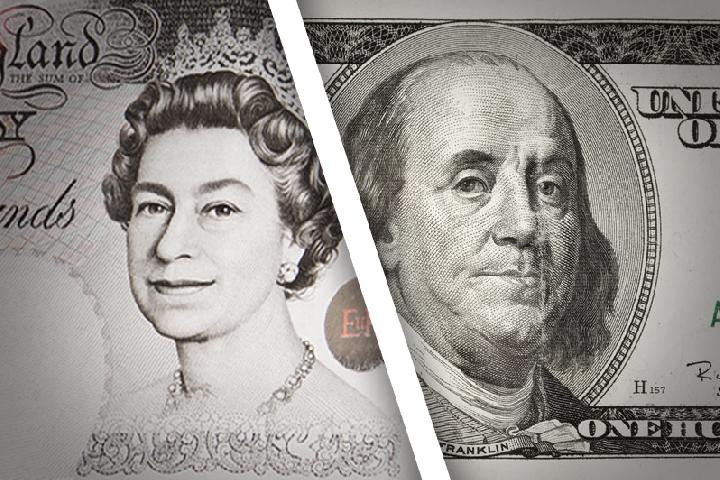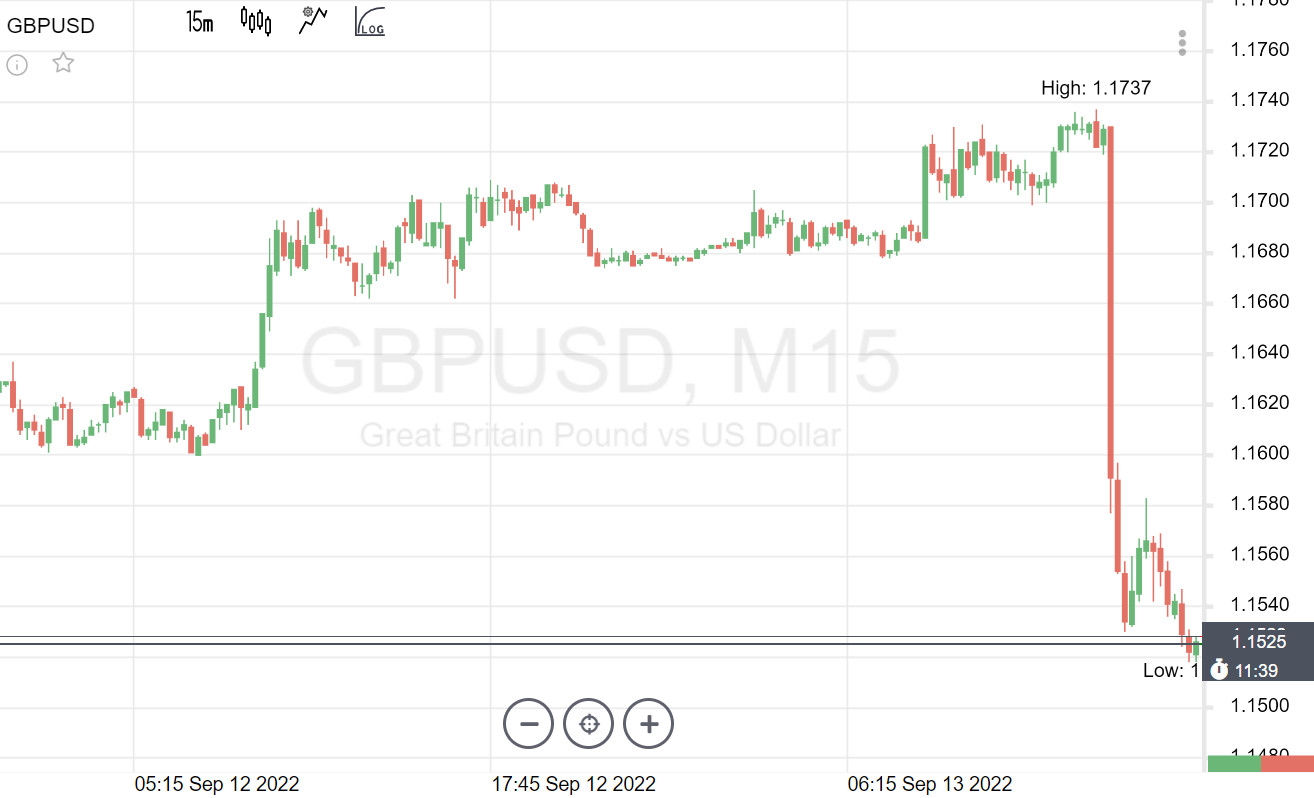
The pound received support on Tuesday from the labor market data. The latest report showed unexpectedly rapid wage growth and at the same time a very low unemployment rate in the UK.
The unemployment rate in the UK exceeded analysts' expectations: it fell to 3.6% in July, compared with 3.8% in June. At the same time, the average salary increased by 5.5% in July, which also surprised experts who expected an indicator of 5.4%.
Immediately after the release of data, the British currency jumped in price against both the euro and dollar, and in general in relation to most other major currencies. However, the dollar rose sharply after the release of new data showed higher inflation in the US than markets expected. As a result, the GBP/USD pair loses 1.34% at 16:30 London time and was at the level of 1.1525.

The overall US consumer price index increased by 8.3% y/y in August. This happened contrary to the expectations of analysts, who predicted an increase of 8.1%. However, it should be noted that the current indicator of this index is still lower than the July value of 8.5%.
One way or another, the dollar index felt tremendous support and by the time this review was being prepared, it was trading at 109.55, adding 1.14% to the final value of the previous trading day.
Federal Reserve Chairman Jerome Powell, Vice Chairman Lael Brainard and other members of the Federal Open Market Committee (FOMC) said last week that the main thing in their strategy is to reduce the inflation rate. Now there is no doubt that at its meeting next week, the FOMC will raise the key interest rate in the US by 75 basis points. Market participants convince themselves that such efforts by the Fed will bear fruit.
It is expected that positive news on the labor market in the United Kingdom will push Bank of England officials to continue raising interest rates in the country. The British central bank, as well as the Fed, is fully confident in all available ways to cope with the rampant inflation in the country, and therefore is preparing to raise rates by at least 75 basis points on September 22.
And inflation in the country is really rampant, in particular in the food sector. According to a study by the consulting company Kantar, the average receipt for products of a resident of the UK increased by $670 per year compared to the same period last year.
The Guardian publication, referring to this study, found that the increase in food prices in Britain in August reached a record level of 12.4%. At the same time, milk (31%), butter (25%) and dog food (29%) rose the most.
Fraser McKevitt, head of retail and consumer analysis at Kantar, said that there is no end in sight to this food inflation, as the rate of price growth for food and beverages continues to rise.
In this regard, 75% of investors predict a rate increase of 75 basis points, according to Sterling OIS.
But currency strategists from Goldman Sachs, on the contrary, are confident that the BoE is not yet ready to raise rates so significantly, which will greatly disappoint market expectations and pound itself, which will definitely wilt in a pair with many major currencies in the short term.
Goldman Sachs analysts predict another increase of only 50 basis points. Probably, the bank takes into account the impact of the recently announced UK government restrictions on energy prices, which should reduce inflationary pressure in the country.
By the way, GBP currently ranks third in 2022 with the worst indicators after JPY and SEK.
Nevertheless, the pound will be able to grow or, at least, not sink against the major world currencies only after the BoE meets market expectations next week and raises rates by at least 75 basis points.
Earlier, the BoE raised the base interest rate by a record 50 basis points since 1995 – from 1.25% to 1.75% per annum. Today, the rate is at its highest level since December 2008, when it was 2%.
According to the forecasts, the UK economy will definitely enter a recession, it will begin already from the fourth quarter of this year. Annual inflation in the UK by the end of July accelerated to a record 10.1% since 1982 from 9.4% a month earlier.
 English
English 
 Русский
Русский Bahasa Indonesia
Bahasa Indonesia Bahasa Malay
Bahasa Malay ไทย
ไทย Español
Español Deutsch
Deutsch Български
Български Français
Français Tiếng Việt
Tiếng Việt 中文
中文 বাংলা
বাংলা हिन्दी
हिन्दी Čeština
Čeština Українська
Українська Română
Română

